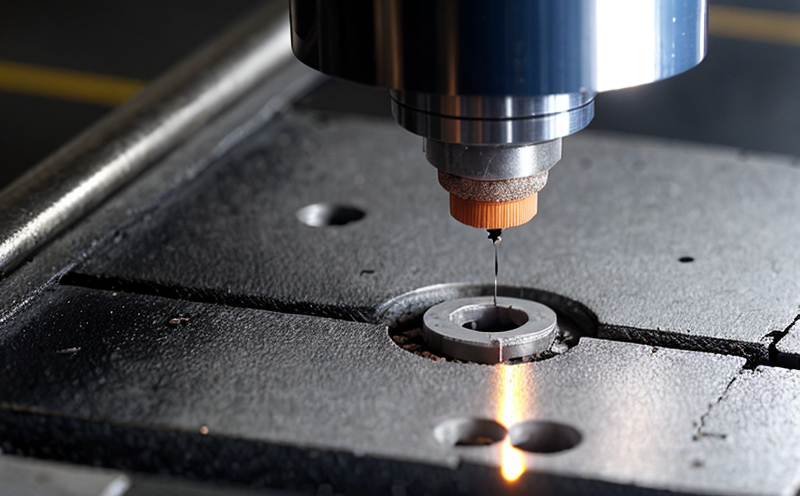IEC 60749-18 Salt Atmosphere Failure Testing
The IEC 60749-18 Salt Atmosphere Failure Testing is a critical process used to evaluate the corrosion resistance of semiconductor and microchip components. This testing method simulates real-world environmental conditions, ensuring that these components can withstand exposure to salt atmospheres without degradation or failure.
Corrosion is one of the most significant challenges for semiconductor and microchip manufacturers. Salt environments are especially harsh due to their high humidity levels, which accelerate the corrosion process. IEC 60749-18 provides a standardized procedure to assess how well components can endure such conditions over time.
The test method involves exposing specimens to a controlled salt atmosphere for extended periods. The salt solution is typically composed of sodium chloride (NaCl) dissolved in water, with the concentration and exposure duration tailored according to specific IEC 60749-18 requirements. This allows researchers and quality assurance teams to determine the suitability of components under expected operating conditions.
The testing process begins with meticulous preparation of the specimens. This includes cleaning them thoroughly to remove any contaminants that might interfere with the test results. The cleaned specimens are then subjected to a series of steps, including exposure to the salt atmosphere, drying, and observation for signs of corrosion or degradation.
Once the test is complete, detailed analysis is conducted to assess the impact of the salt environment on the components. This involves visual inspection as well as more advanced techniques such as scanning electron microscopy (SEM) and energy-dispersive X-ray spectroscopy (EDX). These analyses help identify specific areas where corrosion has occurred and provide insights into the nature of the degradation.
The results of this testing are crucial for quality managers, compliance officers, R&D engineers, and procurement teams. They ensure that components meet stringent international standards, thereby enhancing product reliability and customer satisfaction. By adhering to IEC 60749-18, manufacturers can demonstrate their commitment to delivering robust, long-lasting products.
In summary, the IEC 60749-18 Salt Atmosphere Failure Testing is an indispensable tool in the semiconductor industry. It provides a standardized approach to evaluating corrosion resistance, ensuring that components perform reliably in challenging environments. This testing method supports continuous improvement and innovation within the sector.
Benefits
- Ensures compliance with international standards (IEC 60749-18).
- Evaluates corrosion resistance of semiconductor components under real-world conditions.
- Enhances product reliability and customer satisfaction.
- Aids in the continuous improvement of manufacturing processes.
- Supports R&D efforts by identifying areas for enhancement.
- Facilitates easier procurement decisions based on test results.
- Provides detailed insights into the nature and extent of corrosion.
Quality and Reliability Assurance
The IEC 60749-18 Salt Atmosphere Failure Testing is a cornerstone in quality and reliability assurance programs. By subjecting components to controlled salt environments, manufacturers can identify potential weaknesses early in the development process. This allows for targeted improvements before products reach market.
Quality managers rely on this testing method to ensure that all components meet stringent performance criteria. Compliance officers use these results to verify adherence to regulatory requirements and industry best practices. R&D engineers benefit from detailed insights into material behavior, which can drive innovation and product development.
The testing process also supports procurement teams by providing objective data for supplier evaluations. By ensuring consistent quality across all components, manufacturers can build trust with their customers, leading to higher satisfaction levels.
In conclusion, the IEC 60749-18 Salt Atmosphere Failure Testing is a vital component of comprehensive quality and reliability assurance strategies. It helps maintain high standards in the semiconductor industry while promoting continuous improvement and innovation.





